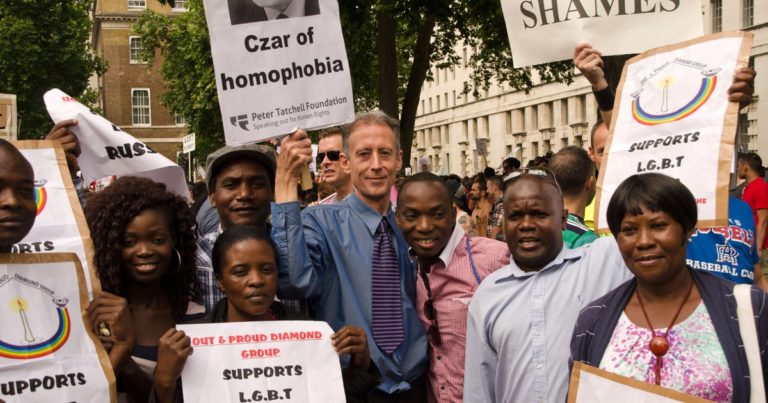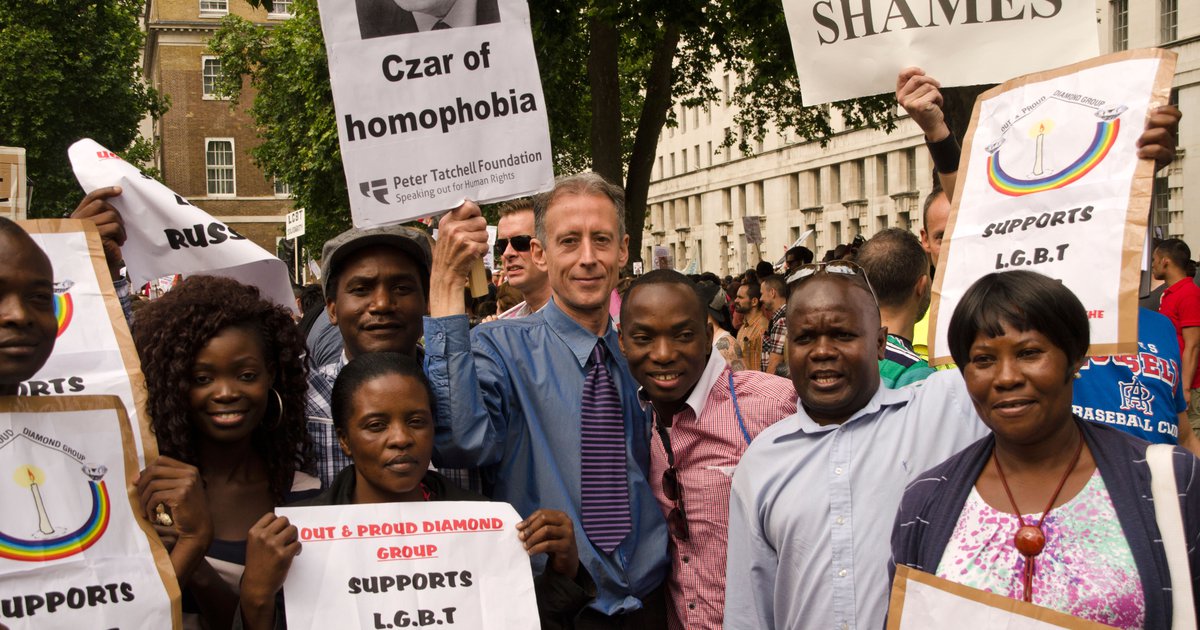

LGBT people around the world do not owe their freedoms to Peter Tatchell – but if you watched Netflix’s new documentary, you might think they do.
‘Hating Peter Tatchell’, released last month with the backing of Elton John, tells the story of the celebrated – and controversial – British LGBT rights activist and his campaigning over half a century. But by excluding diverse voices and crucial context, the film fails to reflect the wider story of this period – and unfortunately presents Tatchell as a sort of ‘white saviour’ rescuing queer people everywhere.
This could have been a much richer and more empowering film. Instead, watching it left me frustrated for three main reasons.
1. Missing voices
An almost entirely white and male British cast of interviewees, including famous gay actors Stephen Fry and Ian McKellen, reflect on Tatchell’s 50-plus years of campaigning and civil disobedience for LGBT rights in the UK and internationally.
We hear Tatchell talk about his protests in more than a dozen countries, and watch as he prepares to travel to Russia ahead of the 2018 football World Cup, to draw attention to Putin’s anti-LGBT policies. But we hear very little from the people he defends. Grassroots victories are eclipsed by British celebrities’ second-hand stories.
Who explains the human cost of the backlash against sexual rights in Putin’s Russia? Fry. Russian LGBT people appear in footage of arrests and homophobic assaults. But they are in the background, as if they are only props in Tatchell’s story. The only Russian activist we hear from is thanking Tatchell for his help.
2. Missing context
The 1980s was a “horrendous period” for LGBT people in the UK, Tatchell recalls. The HIV epidemic escalated anti-gay discrimination, while Margaret Thatcher’s Conservative government introduced Section 28, a law that banned the so-called ‘promotion’ of homosexuality in schools. “Police were persecuting us, not protecting us,” Tatchell says, referring to the surge in arrests of gay and bisexual men.
What’s missing here is any reflection of racial justice struggles at the time. In the 1980s, to expect police protection was a privilege not shared by all. The black civil rights movement is cited only briefly, when we hear Tatchell say it inspired him and that he “adapted their ideals, values and methods to my own human rights work”.
There’s no mention of how anti-LGBT discrimination intersects with racial or gender-based oppression, which continues to leave black trans women particularly at risk of violence. Also pushed off screen are other UK civil rights struggles that took off in the 1980s, from disability rights to industrial action by miners.
3. White saviourism?
In 2001, Tatchell ambushed the Zimbabwean dictator Robert Mugabe in a hotel lobby, attempting a dramatic citizen’s arrest on ‘charges’ of torture. “Zimbabwean human rights defenders asked if I would try and do something to raise international awareness about the abuses of the Mugabe regime,” he explains in the film.
As with its coverage of Tatchell in Russia, the documentary gives us only one scene in which we hear directly from the Zimbabwean activists. And again, it is a clip in which local campaigners are thanking the white British man. The work they have done over the years to fight for their rights in their own country is entirely invisible.
In another scene, we see Tatchell campaigning outside a London mosque. “We’re trying to encourage solidarity between Muslim people and gay people,” he explains. There are numerous groups in London led by people of colour that are building such solidarity within their own communities – but you wouldn’t know it from the film.